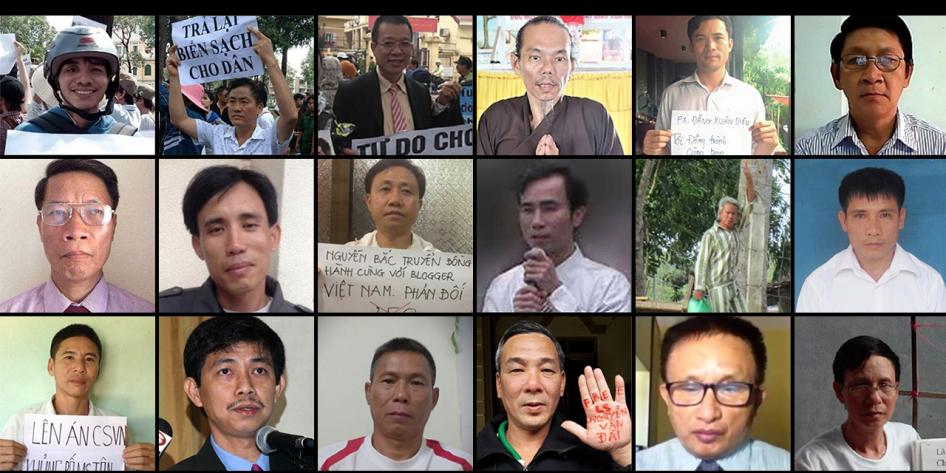(New York) – At least 30 activists and dissidents were sentenced to prison in Vietnam in 2019 simply for exercising their fundamental rights to freedom of expression, association, and religion, Human Rights Watch said today in releasing its World Report 2020.
The one-party state severely limited all basic civil and political rights and banned any activities that the ruling Communist Party deemed a threat to its monopoly of power. Activists and bloggers, in particular, suffered surveillance, travel bans, physical assaults, interrogation, and arrest, and courts convicted and sentenced them to long prison terms.
“2019 was a brutal year for basic freedoms in Vietnam,” said Brad Adams, Asia director. “The Vietnamese government claims that its citizens enjoy freedom of expression, but this ‘freedom’ disappears when it is used to call for democracy or to criticize the ruling Communist Party.”
In the 652-page World Report 2020, its 30th edition, Human Rights Watch reviews human rights practices in nearly 100 countries. In his introductory essay, Executive Director Kenneth Roth says that the Chinese government, which depends on repression to stay in power, is carrying out the most intense attack on the global human rights system in decades. He finds that Beijing’s actions both encourage and gain support from autocratic populists around the globe, while Chinese authorities use their economic clout to deter criticism from other governments. It is urgent to resist this assault, which threatens decades of progress on human rights and our future.
The Vietnamese authorities ban religious activities that they arbitrarily deem to be contrary to “national interest,” “public order,” or “national unity.” Followers of unapproved religious groups are criticized, forced to renounce their faith, detained, interrogated, tortured, and imprisoned. In August, a court in Gia Lai province sentenced Rah Lan Hip to seven years in prison for his affiliation with Dega Protestantism.
In November, a court in Ho Chi Minh City sentenced an Australian political campaigner, Chau Van Kham, and his Vietnamese fellow activists Nguyen Van Vien and Tran Van Quyen to 12, 11, and 10 years in prison, respectively, for affiliation with an overseas political party.
Activists and bloggers frequently are assaulted by officials or thugs who appear to work in coordination with authorities and enjoy impunity. In July, a group of rights activists was attacked in Nghe An province while traveling to a local prison to show support for political prisoners there on hunger strike protesting mistreatment.
Police routinely place activists under house arrest or briefly detain them to prevent them from participating in meetings and protests or attending the trials of fellow activists. In September, security agents prevented lawyer Dang Dinh Manh from leaving his house to attend a meeting with a German delegation.
Police frequently prevented rights campaigners from traveling abroad, sometimes citing vague national security reasons. In November, the police prohibited Father Nguyen Dinh Thuc from traveling to Tokyo. In December, officials refused to issue a passport to former political prisoner Le Cong Dinh.
Vietnam’s problematic cybersecurity law went into effect in January. The overly broad and vague law gives authorities wide discretion to censor free expression and requires service providers to take down content that authorities consider offensive within 24 hours of receiving the request. At least 25 people were convicted for expressing critical opinions on the internet.
In November, police arrested an independent journalist, Pham Chi Dung, for urging the European Union to require Vietnam to improve its rights record as a condition of entering the European-Vietnam Free Trade Agreement.
In June, Vietnam ratified International Labor Convention (ILO) 98 on collective bargaining and the right to organize and in November, the National Assembly passed a revised labor code, which will be effective in January 2021. However, the new law does not mention independent labor unions.








